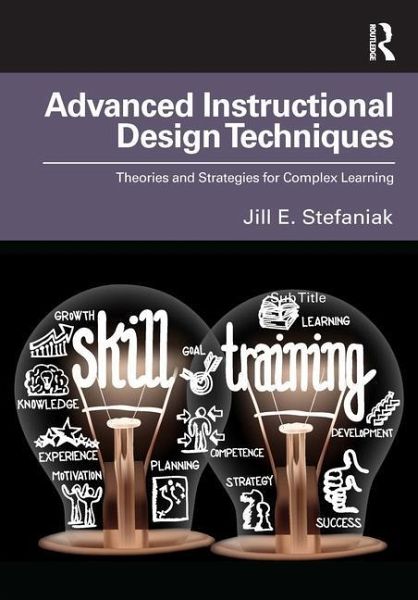
Advanced Instructional Design Techniques
Theories and Strategies for Complex Learning
Versandkostenfrei!
Versandfertig in 6-10 Tagen
56,99 €
inkl. MwSt.
Weitere Ausgaben:

PAYBACK Punkte
28 °P sammeln!
Advanced Instructional Design Techniques provides comprehensive coverage of advanced topics in instructional design and development. This ideal resource for upper-level graduate coursework presents a thorough overview of theoretical foundations that support learning design beyond basic information processing and behaviorist principles, along with innovative strategies and problem-solving techniques to support designing for complex situations. Twelve wide-ranging chapters cover challenging topics such as needs assessment, sustainability, ethics, cognitive load, and more. Emphasizing reflective ...
Advanced Instructional Design Techniques provides comprehensive coverage of advanced topics in instructional design and development. This ideal resource for upper-level graduate coursework presents a thorough overview of theoretical foundations that support learning design beyond basic information processing and behaviorist principles, along with innovative strategies and problem-solving techniques to support designing for complex situations. Twelve wide-ranging chapters cover challenging topics such as needs assessment, sustainability, ethics, cognitive load, and more. Emphasizing reflective practice and decision-making in design environments, the book attends to the models and constructs that support context-specific instructional design across learning and training, from higher education and K-12 schooling to business and industry training to health care and public-sector services.














